If you think wildlife management for deer is difficult, consider what it’s like when problem critters can destroy your crops and crush your house? While much of the world thinks that African elephants are an endangered species, those who live in areas inhabited by pachyderms know that such claims are wildly exaggerated. Many National Parks in Africa are being destroyed by elephant over-population with the similar results to whitetail deer over-browsing a forest. Unlike deer, elephants eat the tops of trees and push them over to for a meal. As a result, elephant overpopulation looks like a category 5 twister or hurricane passed through with massive defoliation and deforestation.
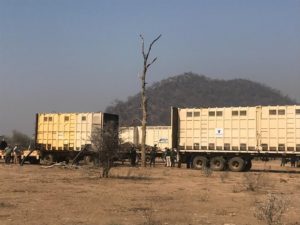
If you’d like to participate in world wide conservation, there’s no better place this week than the annual Safari Club International Convention in Reno Nevada. You will find every imaginable hunt in the world and support those who manage conservation. Visit www.showsci.org for full details.
Ironically, my first trip to Africa included a hunt on the Humani Conservancy in Zimbabwe where elephants had just been introduced. I hunted with Roger Whittall Safaris (www.rogerwhittallsafaris.com) and enjoyed an incredible adventure. Recently, I received a holiday letter from Sarah Whittall describing their attempts to control elephant populations on the million-acre Humani Conservancy.
Roger Whitetail Safaris
“The elephant capture was an absolute necessity as those of you that have visited Humani have witnessed the deforestation by these beautiful large creatures. The SVC hope to get permits to capture and move another 100 in 2019. Who would have thought we would have as many as over 2200 elephant and would be exporting elephant out of the conservancy after the introduction of 500 elephants 25 years ago.
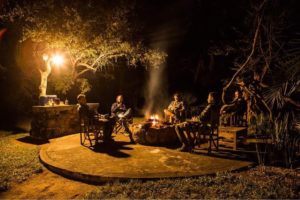
The capture itself was extremely successful where by 100 elephants were captured and moved to the Zambezi valley to the RIFA (Government controlled) safaris area. The animals selected were those family units of around 8 to 10 animals. They were darted from helicopters, loaded into recovery vehicles using a crane and then transported to 30-ton lorries with containers specially made to hold the elephant. From here they were moved onto the lorries and made their way to their new home in the Zambezi valley. The Humani story of conservation is only possible through the continuous support by the hunting community over the last 44 years.
Four elephants were darted and collared to help with the human wildlife conflict. We are hoping with the collars they will be able to inform us when the bulls move to the neighboring community giving us time to go and chase them back before they raid community crops and get killed or wounded by Zimparks.”
Plains Game Management
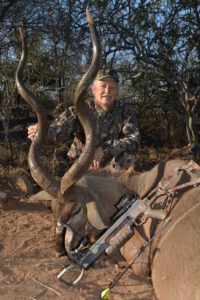
Unlike Zimbabwe where many hunting operations are enormous, South African game ranches typically contain many thousands of acres but are fenced to keep game from invading neighboring farmland and to manage herd populations inside the perimeter.
I’ve hunted several times with Louwlardus safaris (www.tuugo.co.za) which has an intensive management plan that greatly benefits hunters. They take the European approach to hunting in which sportsmen shoot the oldest members of a species, not necessarily the largest. For American hunters, this requires a mental adjustment from “monster” to “old monster.” For example, I watched a waterhole that had a parade of mature kudu bulls drink each day. My management target animal was more than 10 years old and turned out to be all the horn-size I could expect. Plus, the animal was less than half price, the financial incentive used to promote the harvest of management animals.
If you can make the SCI Convention this week, be sure to ask perspective outfitters about management animals. Whether you want the bull-of-the-woods or an animal beyond its prime, your dollars will support wildlife conservation.



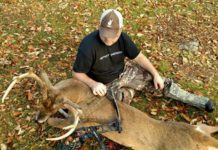
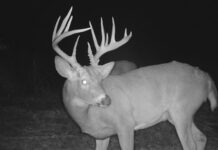




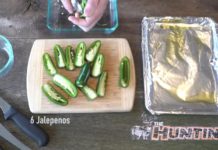

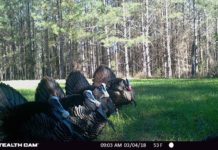

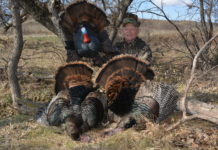


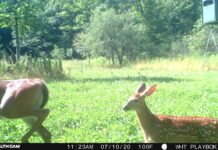
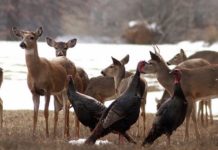

![The Best Deer Camp Chili [VIDEO] Deer Chili Ingredients, Tomatoes, Chili Spices](/wp-content/uploads/2015/10/Deer-Chili-Deer-Camp-Recipe-218x150.jpg)
![How to Call Elk Early in the Season [VIDEO]](/wp-content/uploads/2016/08/byers003-218x150.jpg)

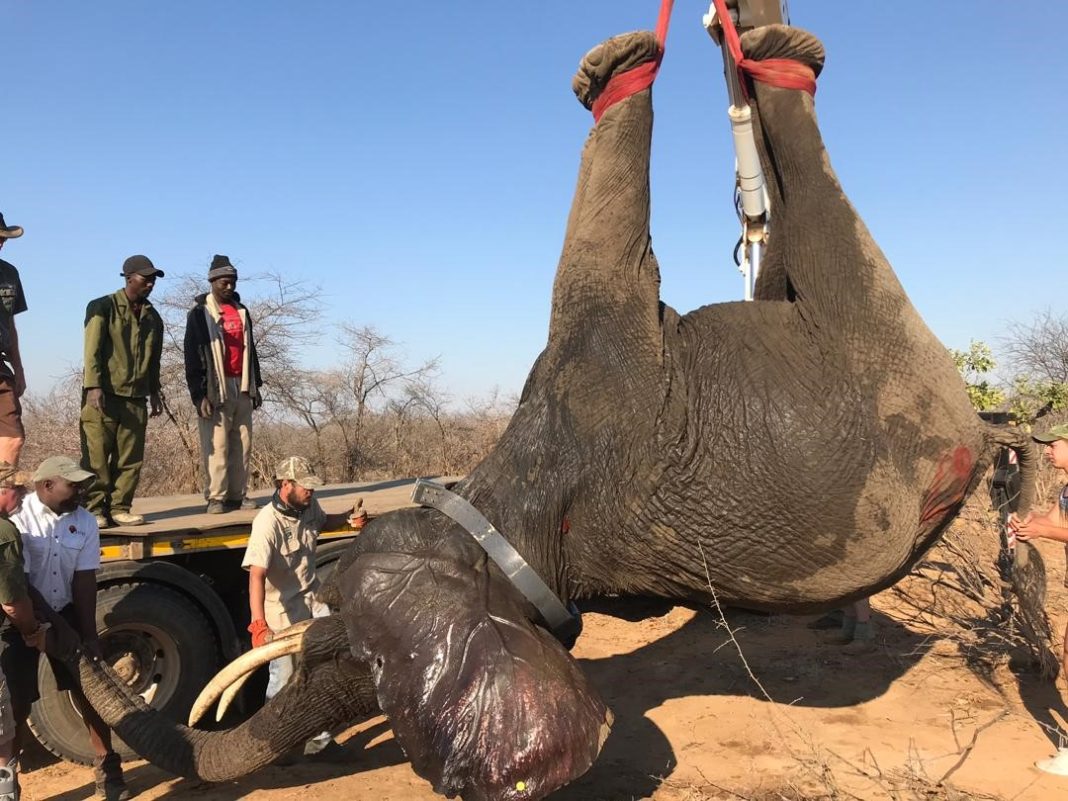


![Idiots Disturb Hunter: How Would You Have Handled It? [VIDEO]](/wp-content/uploads/2015/10/DSC00110-e1474487693878-100x70.jpg)
![Albino Buck Shocked to Shed His Antlers [VIDEO]](/wp-content/uploads/2015/10/AlbinoDeer-100x70.jpg)